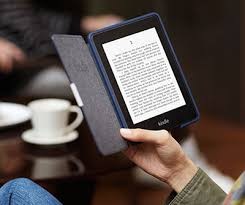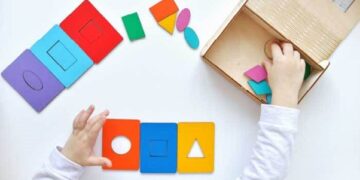Ebook Vs Printbook
 We are seeing that eBooks are in vogue. Kindle is frequently seen in hands of people; instead of carrying bunch of books one just needs to carry kindle and the person can read loads of books at his/her convenience.
We are seeing that eBooks are in vogue. Kindle is frequently seen in hands of people; instead of carrying bunch of books one just needs to carry kindle and the person can read loads of books at his/her convenience.
In 2013, Flipkart had teamed up with Smashwords to distribute eBooks on their platform. Smashwords is World’s largest distributor of eBooks written by independent authors, worldwide. In the month of November 2015, Smashwords announced on their blog that Flipkart is terminating their contract with them. Reasons being Flipkart cannot service its clients in terms of pricing and little problems in software.
I don’t think the paper can be replaced by e-books because problems occur when people depend on digital sources. Digital systems can crash and can get corrupt. And, people like to possess things physically. Some things are irreplaceable, reading a print book is easier. Humans will always have an affinity for physical property and a digital version of a favorite story just doesn’t satisfy the same needs that a bound, uniquely pictured, individual, and colorful copy does. There are millions of avid readers who have stock of great classic books which are highly priced than gold and diamonds. They will never give up priced property of their books and they will pass it down and habituate their children and loved ones to this form of entertainment.
I am sure; countless people in this world will never give up pleasant experiences related to buying books and visiting book fairs and book stores. The entire experience which includes visiting the store, sitting in a corner, picking books, reading reviews, feeling them in hand, looking at the pictures, feeling the leaves, making note on a piece of paper is awesome. And while reading a paper book – writing all over the pages, folding the page corners, the unknown surrounding a beaten-up used book, trading with your friends, easily sharing with others, the smell of a new book versus a muskier old book. No, this cannot change. It’s just priceless.
Amazon’s Kindle Unlimited – the eBook service claims to offer over 600,000 titles in an all-you-can-read format for $9.99 a month. Such subscription services are not new; we have Scribed and Oyster which have been around for a while. But, each person has his/her own speed of reading. One of the books might be so good that you may read its pages again and again to get newer insights.
In 2013 according to a survey conducted by Pew Research in America, 28% of adults agreed to have read an eBook in past 2-3- years, but 69% reported reading a print book. More than 54% of adults visited the library for one reason or another. So while e-reader use is on the rise, and eBooks are becoming more popular, a large number of readers prefer print.
 Without books there wouldn’t be librarians, library staff, or bookshops and salesmen. These are such affectionate people to be around with. There are so many eco-libraries who plant trees after they cut them down and that solves the tree problem.
Without books there wouldn’t be librarians, library staff, or bookshops and salesmen. These are such affectionate people to be around with. There are so many eco-libraries who plant trees after they cut them down and that solves the tree problem.
You just don’t get the pleasure of reading e-Books because it’s all technical. Technology is going far, far ahead in each business segment not sparing even books. The fact is that eBook lack soul. You can hardly connect with it. It is like you trying to connect with your dear one on Skype. I think digital channels including eBooks have their many uses; but people like to develop an emotional attachment with their possessions. These attachments always have to be real and tangible! Our perception of ‘digital’ is in transitional mode. From being hailed as innovative and cutting-edge, it is sliding to the triviality of being just another utility.
It is said that e-books are environment friendly, they are green. But, it requires battery and the battery needs to be charged. For charging the battery we need electricity. If we use paper books we can cut back the use of electricity. Another good thing about paper books is people absorb more information in them. Paper books are much more portable and can be taken anywhere, and do not rely on power. You can read them in more places and the information is always easier to flip between. It’s much more natural and after having read both paper and digital, our bodies and minds are more inclined towards natural paper books.
 Libraries play a pivotal role in knowledge development:
Libraries play a pivotal role in knowledge development:
Funding: Philanthropists and business houses fund libraries, and therefore essentially they are available at a lower cost to the public. Even calculating in the costs of property tax levies, libraries charge their patrons hardly any cost. And, they stack number of copies of each title, at any time few readers can borrow same title.
Preservation of knowledge: In fact preserving knowledge is a huge part of any library’s mission. Digital reservation is already happening worldwide of books, journals, historic record, science fictions, research etc. etc. The preservation of print materials, and the digitization of other parts of library collections, is a regular priority. So while libraries wrestle with publishers, subscription services face many similar obstacles. All content readers want is available in digital format in most of the libraries in the cities. Many institutions are juggling with technology and investment in it for making their libraries more relevant to public.
Patrons seek variety of services: Patrons count on libraries to do more than just lend books. They visit for free Wi-Fi or even computer use and research assistance from knowledgeable staff. Often such services include assistance with job searches, especially for those who do not have reliable internet service at home.
So while libraries wrestle with publishers, subscription services face many similar obstacles. Each content or let’s say most of the content readers want will be available in digital format.
While reading eBooks, we spend quite a lot of time moving, pushing, linking, scrolling, and jumping through text that when we sit down with a novel, once the matter is touched, scrolled and jumped off, we lose interest of getting back the page. We are in this new era of information behavior, and we’re beginning to see the consequences of that. There are too many interruptions on the digital platform – the hypertext, emails, videos and popup advertisements. These are terrible interruptions to readers.
Some other consequences consist of how e-books, computers, and tablets reduce our reading speed and comprehension. Researchers found people understand the material they read on paper better than they do on e-books. Even though today’s children and college students are computer savvy, the majority of them prefer printed versions of text over e-books.
 Cognitive reasons score higher in case of paper books: Do you know this? Cornell University researchers found that both users and non-users of eBooks generally preferred using printed versions of textbooks, because they are convenient to use and handle.
Cognitive reasons score higher in case of paper books: Do you know this? Cornell University researchers found that both users and non-users of eBooks generally preferred using printed versions of textbooks, because they are convenient to use and handle.
Anne Mangen, literacy professor at Norway’s University of Stavanger, explains this fact: “Reading is human-technology interaction. Perhaps the tactility and physical permanence of paper yields a different cognitive and emotional experience; reading that can’t be done in snippets, scanning here and there, but requires sustained attention.”
For most of us, feeling pages and smelling the book awakens interest to read in the subconscious. Marilyn Jager-Adams, literacy expert and cognitive psychologist at Brown University, offers this explanation: “All those cues like what the page looks like, what the book felt like, all those little pieces help us put together the whole thing. And they are just lost or impecunious on a Kindle or tablet.”
Lots of readers have a habit of scribbling their thoughts and opinions in the margins or some readers have habit of underlining some important lines while reading books: e-Books do not allow this happiness. For many people this is essential to understand a book deeply. There’s nothing much tangible to engage our other senses in eBook.
E-books do have comparable elements, like percentage-remaining figures or symbolic progress bars, to mimic this experience. However, rather than tangible incentives, these elements are merely visual (or illusory). Additionally, rather than pages coming in pairs, e-books and tablets are apt to be displayed individually, which limits spatial representation. E-books and tablets offer just a single page, which is re-written constantly, over and over.
Textbook makers, bookstore owners and college student surveys all say millennial still strongly prefer print for pleasure and learning, a bias that surprises reading experts given the same group’s proclivity to consume most other content digitally. A University of Washington pilot study of digital textbooks found that a quarter of students still bought print versions of e-textbooks that they were given for free.
I would sum it up this way: the distinction between e-books and paper really comes down to personal preference. Some people prefer reading on a computer screen, whereas others rather prefer to read from the printed versions. It’s too difficult to predict whether people will choose to read paper books for deep reading and tangible reasons or favor e-books in the future. In my opinion eBook cannot replace paper book.












































